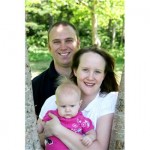Letting Go of What We Give Up When We Become Parents, by Meri Levy, MFT
In becoming parents, along with the love and joy that a baby brings, we often face issues that arise relating to our own childhood experiences. For many people, the unmet needs and wants from our childhood simmer below the surface, and the arrival of a baby and the transition to becoming a parent can bring them to the forefront.
It is important to allow ourselves to grieve the losses that are a part of becoming a parent — the loss of nurturing we feel as the focus shifts to nurturing our child, the loss of independence, and our diminished ability to focus on our own needs — and work on letting go of unmet expectations regarding our own childhood.
The phases of grieving have long been studied and are well understood, although their duration, order and intensity can vary greatly, and each individual’s experience is unique.
The first phase is denial: in this case we deny feelings of loss because they seem inappropriate or are too uncomfortable to deal with.
The second phase is anger, and this can take many forms: anger at our partner for their lack of support, anger at our parents for perceived flaws, anger at friends for their lack of understanding of the changes we are experiencing. And even sometimes anger at our child, for the endless demands or because our baby differs from our expectations.
The third phase of grief is bargaining: attempting to avoid or undo our uncomfortable feelings. “If only I had a more supportive husband…, or an easier baby,” etc. These are ways we avoid dealing with the fact that parenting is incredibly hard work, and that our unmet needs from childhood have not and most likely will not be met.
The fourth phase of grief is depression. This can include intense sadness, feelings of hopelessness, loss of interest in life, and a feeling of numbness. Depression is a normal phase of grieving, but when it becomes severe (i.e. thoughts of harming oneself or others) or persistent (more than two weeks), it is crucial to get help.
The fifth and final phase of grief is acceptance. We feel comfortable in our new role as parents. We accept, and can even joke about, how our life has changed and how our child has become the center of our world. And importantly, we do what we can to nurture ourselves, without blaming others, without feeling guilty, knowing that we deserve taking care of, even if the only one who can do it is ourself.
Take a test to see if you have Prenatal or Postpartum Depression

 On Wednesday, I was invited to speak to a group of local doulas, the
On Wednesday, I was invited to speak to a group of local doulas, the